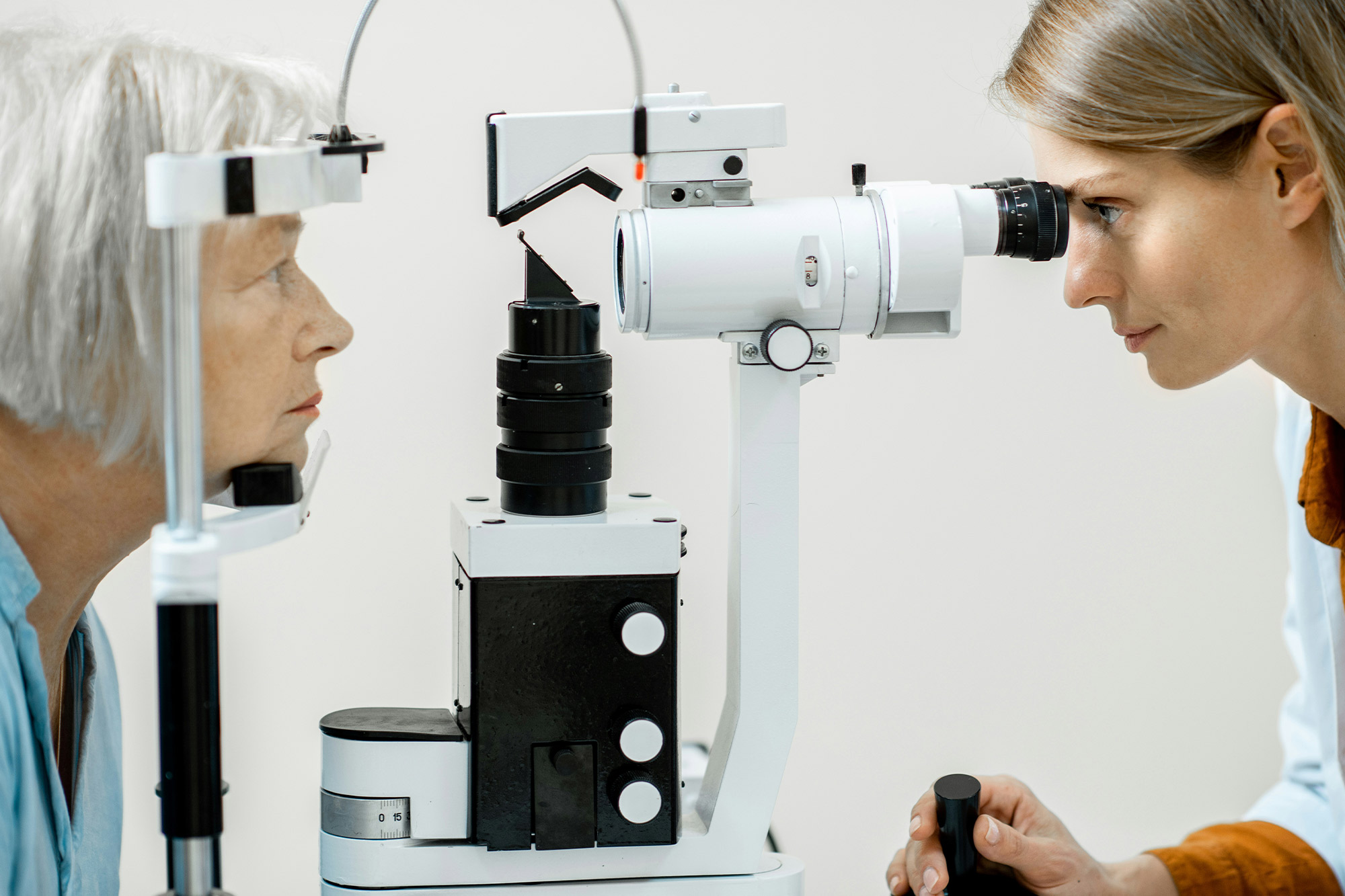


Regular eye exams are essential for everyone, no matter how many birthdays you’ve celebrated. But once you pass the big six-oh, this becomes even more important. This is because you’re now entering the era where age-related eye conditions become more likely—and the earlier they’re diagnosed, the better the outlook.
Preventative eye care for seniors should be considered as important as every other element of health. Deteriorating vision impacts every area of life, including mental health and increasing the risk of trips and falls.
The American Academy of Ophthalmology recommends that everyone aged 65+ should have their eyes tested every one to two years. However, eye exams for elderly people over 70 or with diagnosed conditions should be carried out annually.
What Happens to the Eyes as You Age?
As with every part of the body, cellular regeneration slows as you get older. Your vision is ever evolving, but this accelerates from around age 50 onwards. This increases the likelihood of both age-related eye diseases and other natural changes that might not be associated with a more serious condition.
These include:
- Loss of contrast sensitivity: This makes it more difficult to differentiate between similar colors, especially in low-light environments. For example, finding it challenging to locate your purse in the depths of a dark handbag or struggling to make out shapes when driving in the rain. Tripping over a curb or step that’s a similar shade to the surroundings is also a very common sign, and one that can lead to physical injury.
- Slow to adjust to changing light conditions: When moving from a light to a dark area, or vice versa, the eyes take longer to adjust and refocus. You might also find that night vision reduces, often causing problems with driving at night.
- Dry eyes: The quality of your tears is vital, and this can deteriorate as you get older. This is known by the slightly confusing term of “dry eye”, which actually causes excessive watering. Post-menopausal women are particularly at risk.
- Becoming sensitive to glare: While this can also be a symptom of other eye conditions, it can simply be a result of eye changes at a cellular level.
Your ophthalmologist will also be looking for signs of age-related eye disease, such as:
- Age-related cataracts: These are commonly diagnosed in those aged 60+ but can be earlier. They generally evolve slowly over years or decades, requiring surgical removal once they cause significant vision issues.
- Age-related macular degeneration (AMD): This leads to loss of central vision and, without treatment, can significantly impact vision and quality of life.
- Glaucoma: Increased pressure within the eye, caused by poor drainage of the aqueous fluid. This can be sight-threatening without treatment.
- Diabetic retinopathy: Issues with leaking blood vessels within the eye caused by high blood sugar. Anyone with either type 1 or type 2 diabetes should have regular eye checks with a specialist eye doctor throughout their life—not just during the senior years.
Other, non-eye related conditions that might first show up in the eyes include high blood pressure, heart disease, tumors, certain types of cancers, high cholesterol, thyroid disease, some autoimmune conditions, and more.
Enhance Your Golden Years with Senior Eye Exam Frequency
Many 60- and 70-year-olds today don’t act their age. And this is something to be celebrated! Thanks to incredible medical advances over recent decades, plus an awareness of what we need to do (or not do) to increase our longevity, means that reaching an age that was previously considered elderly no longer resigns you to wearing beige and sitting in a chair with a warm blanket over your knees. (Although if that’s what floats your boat, then embrace and enjoy).
Parents, grandparents, and great-grandparents are now far more likely to be smashing a ball around a tennis court, taking the RV into the depths of Yellowstone, hiking the PCT, or helping the grandkids hone their baseball skills. Taking steps to ensure your vision remains at its best is one of the greatest things you can do to ensure this continues throughout your senior years.
Discover more about preventative eye care for seniors at
Book an appointment
Fill out the form below and our staff will reach out to you quickly to fully book your appointment and receive all of your necessary information.
Specializing in modern cataract surgery.
Located 1/2 miles North of West Boca Medical Center on Glades Road, directly behind Macy's Furniture Gallery.
West Boca Eye Center
9325 Glades Road, Suite 201.
Boca Raton, FL 33434


